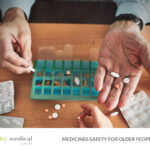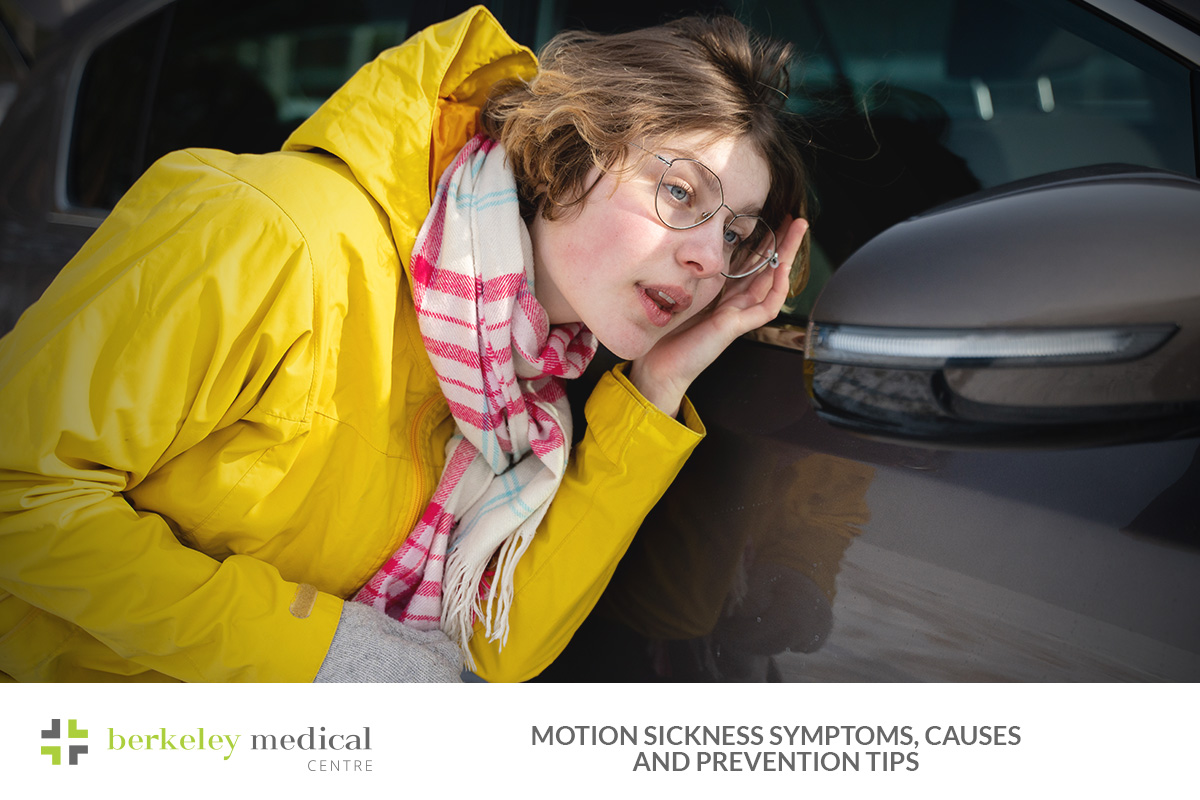Many Australians experience motion sickness, also called travel sickness, car sickness or sea sickness. This condition can make even short trips uncomfortable, leaving you feeling nauseous, dizzy or sweaty. Children aged 2 to 12 are especially prone to it, but adults can also suffer from it.
The good news is that you can prevent or manage with the right strategies. Whether you are travelling by car, bus, plane or boat, learning the causes, symptoms and treatment options will help you enjoy smoother journeys.
In this guide, we explain:
- What motion sickness is and why it occurs
- Common symptoms
- The main triggers and causes
- Prevention strategies and home remedies
- Medical treatment options in Brisbane
What Is Motion Sickness?
Motion sickness happens when your brain receives mixed signals from your senses. For example, your inner ear detects motion, but your eyes focus on something still, such as a book or phone screen. This sensory mismatch confuses your brain and as a result, you start to feel sick.
You may experience it during:
- Car, bus, train or plane travel
- Boat or ferry rides (commonly called sea sickness)
- Amusement park rides
- Virtual reality gaming or flight simulations
Although it is not life-threatening, it can interfere with work, school or family travel. In addition, people who suffer from migraines, morning sickness or anxiety may experience motion sickness more severely.
Symptoms of Motion Sickness
The most common symptom of motion sickness is nausea. However, many people notice other signs, such as:
- Vomiting or retching
- Dizziness or light-headedness
- Cold sweats
- Headaches
- Drowsiness or fatigue
- Dry mouth or sometimes excess saliva
- Loss of appetite
- Increased sensitivity to smells
Most people feel better once the movement stops. Nevertheless, some continue to feel tired, weak or unsteady for hours or even days after travelling.
Causes of Motion Sickness
Motion sickness develops because your senses send conflicting information to your brain. For instance:
- When you read a book in a moving car, your inner ear senses motion, but your eyes do not.
- When you play a virtual reality game, your eyes detect movement, but your body feels still.
This confusion triggers nausea and other symptoms.
Several factors make motion sickness worse, including:
- Poor ventilation or lack of fresh air
- Reading or looking at screens during travel
- Anxiety about travelling
- Strong odours such as petrol or food
If you have a family history of motion sickness, you are also more likely to experience it.
How Doctors Diagnose Motion Sickness
You usually do not need tests or scans to diagnose it. If you consistently feel sick during travel, you likely have motion sickness.
However, if nausea and dizziness occur when you are not moving, it is best to consult a GP. Your doctor can rule out other possible conditions and provide advice tailored to your health needs.
Prevention Tips
You can take simple steps to reduce or prevent it before symptoms begin. Try these evidence-based strategies:
- Sit near the front of a car, bus or train, where movement feels less intense.
- On planes, sit over the wings and close your eyes during take-off and landing.
- On boats, stay on deck in the fresh air and look at the horizon.
- Focus on a fixed point outside instead of reading or looking at screens.
- Rest your head on a headrest or pillow to minimise movement.
- Open windows or air vents for fresh air whenever possible.
- Listen to music or practise deep breathing to stay calm.
- Eat lightly before and during your journey and sip water often. Avoid greasy food, alcohol and caffeine.
- Try acupressure wristbands, which may help reduce nausea for some people.
If you travel by sea, you may find that your body adjusts after a few days, making symptoms less noticeable.
Medicines for Motion Sickness
When prevention strategies are not enough, medicines can help. For best results, take medication about 30 minutes before travel. Once nausea starts, most medicines would not work as effectively.
Always speak with your doctor or pharmacist before taking travel sickness medicine. This is especially important if you are pregnant, giving medicine to children or taking other medications.
Coping With Motion Sickness During Travel
If you start to feel sick despite your preparations, you can still ease your symptoms:
- Nibble on dry crackers or sip a clear, fizzy drink.
- Rest with your eyes closed in a quiet position.
- Take short breaks for fresh air during car trips.
- Carry a small travel kit with wipes, water and a container just in case.
Conclusion
Motion sickness is uncomfortable but manageable. By applying prevention strategies, recognising early symptoms and using treatment when needed, you can make your travels more enjoyable. If you or your child regularly experience motion sickness, the doctors at Berkeley Medical Centre can help. Our GPs provide personalised advice, discuss safe treatment options and support you with strategies to reduce discomfort on future trips.







